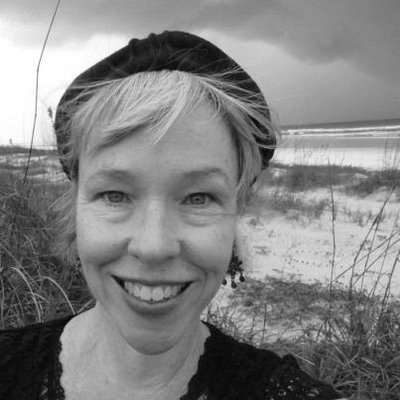It was a promise made to a dying friend – to write his story and give life to his being. Twenty-two years later, former Hoboken resident Nancy Bevilaqua self-published her first book, “Holding Breath: A Memoir of AIDS’ Wildfire Days,” that tells the story of the eight months she spent with David, their forbidden relationship, and her profound love for him.
AIDS in the eighties
In 1988, at the age of 27, Bevilaqua went to work as an AIDS caseworker in New York City. She lived in Hoboken on Adams Street and spent her days at work and her nights meeting people and exploring the local bar scene.
In her book, she includes journal entries of her first year on the job before she met David. She describes the entries as ignorant and self-centered and writes, “We were all ignorant and afraid at the time.” Her job consisted of providing financial and social services to individuals with full-blown AIDS. She writes that some of her “clients…didn’t even live long enough for me to make my first visit to their apartments or hospital rooms.”
“There was no hope,” said Bevilaqua during an interview last week. “At best, people hoped for a year.”
She noted that there was a heightened stigma and fear surrounding AIDS in the 1980s.
“There was just such rampant fear, it was almost palpable,” said Bevilaqua. “People were terrified of getting HIV/AIDS.”
She said the fear added to the stigma and the poor treatment of those living with HIV/AIDS.
“Not only were you dealing with this horrible illness [that] destroyed your body and mind…your chances of survival null, but you were treated badly,” she said.
Then there was David
When she met David he was 41 and had been living on the street for a week. He was a heroin addict and dying of AIDS like most of her other clients, but there was something about him that made her fall in love with him.
Bevilaqua said that she typically went out of her way for clients, whether getting them food or a special item and that she helped them beyond what was expected of her. With David, she went a step farther and lived with him in secrecy in a Lower East Side studio with him for the last eight months of his life. She broke with her professional code, something she said she wouldn’t have done if he didn’t have AIDS.
“Some people you just connect with,” said Bevilaqua. “There was something about him…he wanted more out of things.” She said that she was able to get beyond the stereotype people have when they think of “junkie.”
“He wanted to be seen as full human being,” said Bevilaqua. “And that was just so apparent in his demeanor that it just really struck me.”
She added that, “He wanted to understand his life and I wanted to help him. I know that he didn’t want to die feeling like his life was nothing.”
Bevilaqua said that he really needed someone around him who cared during that final period of his life.
“He wanted to be seen as full human being.” – Nancy Bevilaqua
__________
Getting beyond labels and stereotypes
Bevilaqua tells the story of her relationship with David through journal entries, snippets of stories, and other reflections on the past. Sixteen years after his death, a dream led her to rediscover her love for him and begin the process of putting together her memories of him and their time together.
“By the time I finished the book I really knew and understood David and felt very fond of him,” said Bevilaqua.
She said she hopes that by reading about David, people will see beyond labels and see others as multi-dimensional people.
She is friends with David’s sisters and daughters. She said the memoir was also written for David’s daughters to “give them some idea beyond what they were told…of who he was.”
“I will never forget David,” said Bevilaqua.
Background
Bevilaqua was born in New York City and moved to Hoboken in the late eighties. She spent most of her time in the area until 2010 before she moved to Florida. After studying English Literature and Creative Writing at Reed College and New York University, she worked for 10 years as a caseworker and counselor for people with AIDS, the homeless, and people in drug treatment programs.
She married Lorenzo Bevilaqua, a photographer, in 1994, and in 1998 their son, Alessandro, was born. A few years later Nancy became a freelance writer specializing in travel. Her articles, essays, and photography have appeared in National Geographic Traveler, Coastal Living, the South Florida Sun-Sentinel, several in-flight magazines, and many other publications.
Nancy and Alessandro now live in Florida, but she said she hopes to one day return to Hoboken when her son is older. “Holding Breath: A Memoir of AIDS’ Wildfire Days,” is self-published and available on Amazon. For more information, visit: http://holdingbreathmemoir.wordpress.com/.
Sidebar
Excerpt from ‘Holding Breath: A Memoir of AIDS’ Wildfire Days.”
We’re sitting on his bed in the afternoon after going out for a late breakfast. The T.V. is on and we’ve been laughing. After a few minutes of silence I can feel what’s coming next, and he reaches over (not like him because he’s shy), and puts his hand on my cheek and turns my face toward his, as if we could kiss and go from there. But we can’t, and I’m afraid, and I only smile. The virus is between us, and it is never going to go away, as much as we talk about cures and vaccines. I wish I had leaned over and really kissed him, if only that one time, but I held back, thinking that we would have more time.
